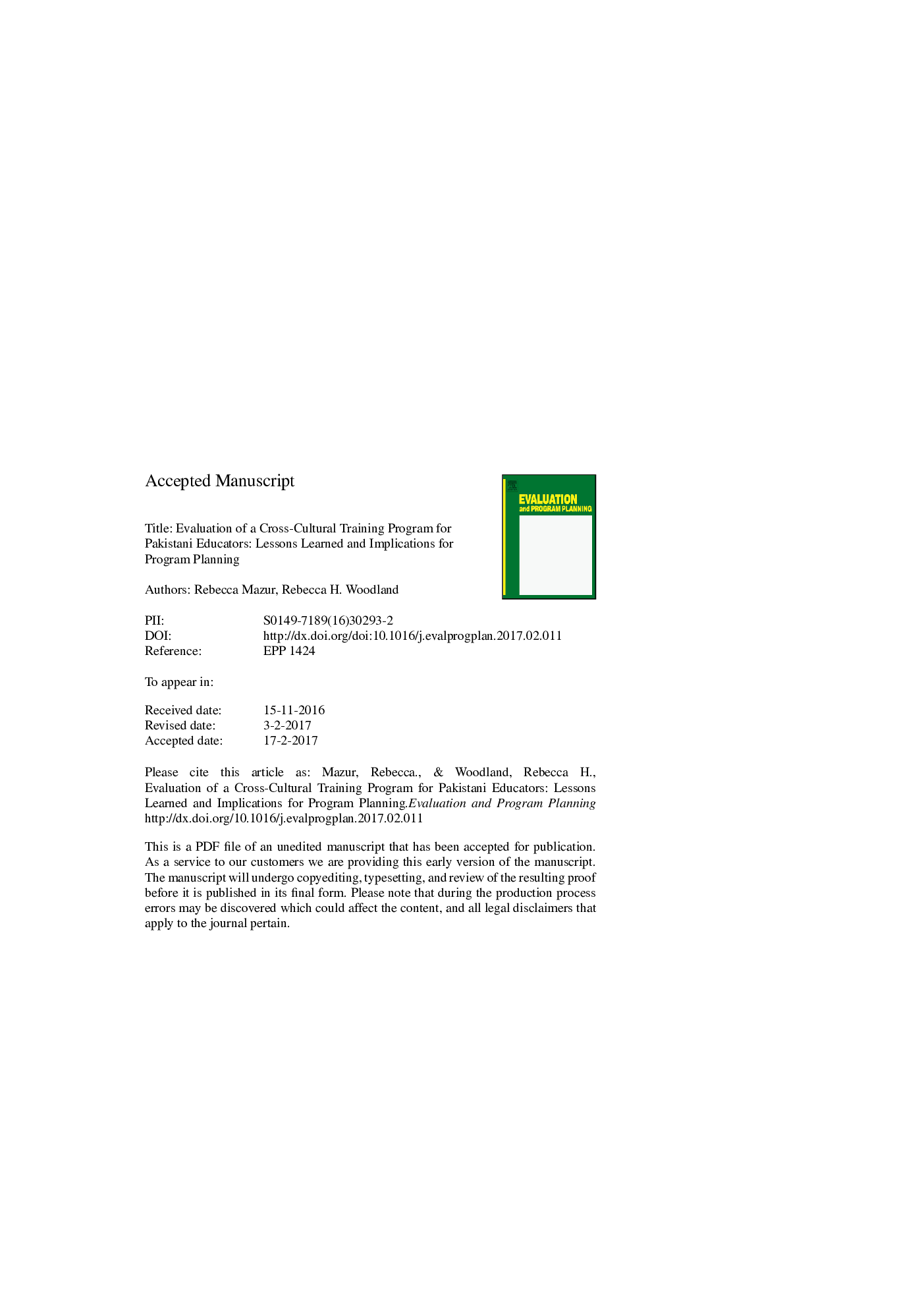| Article ID | Journal | Published Year | Pages | File Type |
|---|---|---|---|---|
| 4930996 | Evaluation and Program Planning | 2017 | 36 Pages |
Abstract
In this paper, we share the results of a summative evaluation of PEILI, a US-based adult professional development/training program for secondary school Pakistani teachers. The evaluation was guided by the theories of cultural competence (American Psychological Association, 2003, Bamberger, 1999, Wadsworth, 2001) and established frameworks for the evaluation of professional development/training and instructional design (Bennett, 1975, Guskey, 2002, King, 2014, Kirkpatrick, 1967). The explicit and implicit stakeholder assumptions about the connections between program resources, activities, outputs, and outcomes are described. Participant knowledge and skills were measured via scores on a pre/posttest of professional knowledge, and a standards-based performance assessment rubric. In addition to measuring short-term program outcomes, we also sought to incorporate theory-driven thinking into the evaluation design. Hence, we examined participant self-efficacy and access to social capital, two evidenced-based determinants or “levers” that theoretically explain the transformative space between an intervention and its outcomes (Chen, 2012). Data about program determinants were collected and analyzed through a pre/posttest of self-efficacy and social network analysis. Key evaluation findings include participant acquisition of new instructional skills, increased self-efficacy, and the formation of a nascent professional support network. Lessons learned and implications for the design and evaluation of cross-cultural teacher professional development programs are discussed.
Keywords
Related Topics
Health Sciences
Medicine and Dentistry
Public Health and Health Policy
Authors
Rebecca Mazur, Rebecca H. Woodland,
